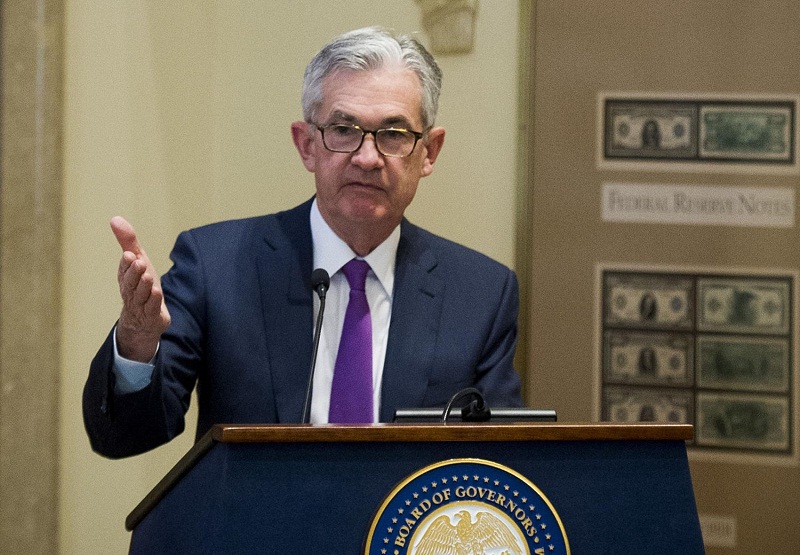Federal Reserve officials earlier this month appeared on track to raise its key interest rate again in December, but they signaled that the pace of future rate hikes might need to slow given emerging risks to the economy, according to minutes of the discussions released Thursday.

Federal Reserve Chairman Jerome Powell addresses the Federal Reserve Board's 15th annual College Fed Challenge Finals in Washington, Thursday, Nov. 29, 2018. (Photo: AP)
The minutes of the Fed's Nov. 7-8 meeting showed that officials expressed concerns about a variety of threats, including the impact of tariffs, a slowing global economy and tightening financial conditions amid falling stock prices.
The Fed has raised rates three times this year and says the current economy is in strong shape. The minutes show support for a fourth hike this year if the labor market and inflation meet or exceed expectations. But after that, officials said further hikes would not be on a preset course.
In a speech Wednesday, Fed Chairman Jerome Powell raised similar points, which sent stock markets surging. Investors interpreted his remarks as evidence that the Fed might consider pulling back from quarterly rate hikes.
Powell said that "there is no preset policy path" for future rate hikes and the current level for the Fed's benchmark rate was very close to "neutral," the point where the Fed is neither stimulating economic growth or slowing growth.
That stood in contrast with comments Powell had made in October when he said that the Fed's policy rate was still a "long way from neutral." That comment had unsettled investors who feared that it meant the Fed would need a number of further hikes to get to neutral.
The minutes also revealed that Fed officials talked about modifying language in their policy statement, which now states that it expects "further gradual increases" in interest rates. Instead, officials suggested incorporating wording to emphasize a greater dependence on incoming data to govern future rate hikes.
Paul Ashworth, chief US economist at Capital Economics, said he expects two rate hikes in 2019, not the three the Fed has been projecting for next year. After mid-year, Ashworth said he expects that "a slowdown in economic growth to below potential forces (the Fed) to the side lines."
The Fed raised its benchmark rate in March, June and in September, with the last increase putting it in a range of 2 percent to 2.25 percent. At the September meeting, the Fed signaled that it would likely raise rates one more time this year, and it projected three more rate hikes in 2019.
The hikes have prompted a flood of criticism from President Donald Trump, who has repeatedly attacked the Fed and Powell personally. Trump tapped Powell last year to be Fed chairman after he decided against giving Janet Yellen a second term.
In an interview this week with The Washington Post, Trump said he was not happy with Powell's support for further rate hikes. The president has blamed the Fed for the steep two-month fall in the stock market and the possibility that his efforts to boost growth with a major tax cut will be thwarted by rising interest rates.
Powell did not reference the president's criticism in his speech, and there was no mention of the attacks in the Fed's minutes. The position of Fed officials is that the criticism will have no impact on the institution, which was set up to guard its political independence.
The minutes did raise a number of worries about Trump's get-tough trade policies, which have levied tariffs on billions of dollars worth of imports from China and other countries and prompted retaliation against US products.
The minutes said that the higher tariffs were raising costs, especially for industries that rely heavily on steel and aluminum. The minutes said that Fed contracts in agriculture said that conditions "remain depressed," reflecting in part the drop in exports due to the trade battle.


